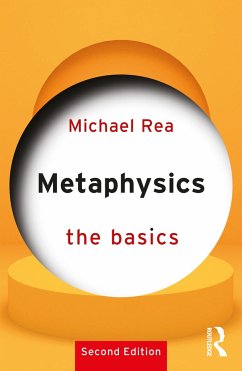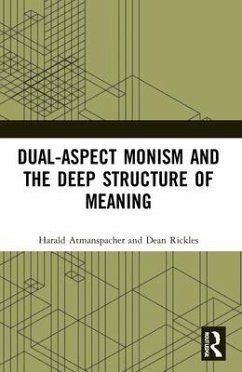
Eliminativism, Objects, and Persons
The Virtues of Non-Existence
Versandkostenfrei!
Versandfertig in 6-10 Tagen
46,99 €
inkl. MwSt.
Weitere Ausgaben:

PAYBACK Punkte
23 °P sammeln!
In Eliminativism, Objects, and Persons, Jiri Benovsky defends the view that he doesn't exist. In this book, he also defends the view that this book itself doesn't exist. But this did not prevent him to write the book, and although in Benovsky's view you don't exist either, this does not prevent you to read it.Benovsky defends a brand of non-exceptionalist eliminativism. Some eliminativists, typically focusing on ordinary material objects such as chairs and hammers, make exceptions, for instance for blue whales (that is, living beings) or for persons (that is, conscious organisms). Benovsky tak...
In Eliminativism, Objects, and Persons, Jiri Benovsky defends the view that he doesn't exist. In this book, he also defends the view that this book itself doesn't exist. But this did not prevent him to write the book, and although in Benovsky's view you don't exist either, this does not prevent you to read it.
Benovsky defends a brand of non-exceptionalist eliminativism. Some eliminativists, typically focusing on ordinary material objects such as chairs and hammers, make exceptions, for instance for blue whales (that is, living beings) or for persons (that is, conscious organisms). Benovsky takes one by one all types of allegedly existing objects like chairs, whales, and persons and shows that from the metaphysical point of view they are more trouble than they are worth-we are much better off without them. He thus defends an eliminativist view about ordinary objects as well as the 'no-Self' view, where he explores connections between metaphysics, phenomenology, and Buddhist thought. He then also considers the case of aesthetic objects, focusing on musical works and photographs, and shows that the claim of their non-existence solves the many problems that arise when one tries to find an appropriate ontological category for them, and that such an eliminativist view is more natural than what we might have thought. The arguments provided here are always topic-specific: each type of entity is given its own type of treatment, thus proving a varied and solid foundation for a generalized, non-exceptionalist, full-blown eliminativist worldview.
Benovsky defends a brand of non-exceptionalist eliminativism. Some eliminativists, typically focusing on ordinary material objects such as chairs and hammers, make exceptions, for instance for blue whales (that is, living beings) or for persons (that is, conscious organisms). Benovsky takes one by one all types of allegedly existing objects like chairs, whales, and persons and shows that from the metaphysical point of view they are more trouble than they are worth-we are much better off without them. He thus defends an eliminativist view about ordinary objects as well as the 'no-Self' view, where he explores connections between metaphysics, phenomenology, and Buddhist thought. He then also considers the case of aesthetic objects, focusing on musical works and photographs, and shows that the claim of their non-existence solves the many problems that arise when one tries to find an appropriate ontological category for them, and that such an eliminativist view is more natural than what we might have thought. The arguments provided here are always topic-specific: each type of entity is given its own type of treatment, thus proving a varied and solid foundation for a generalized, non-exceptionalist, full-blown eliminativist worldview.














